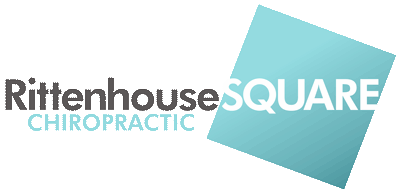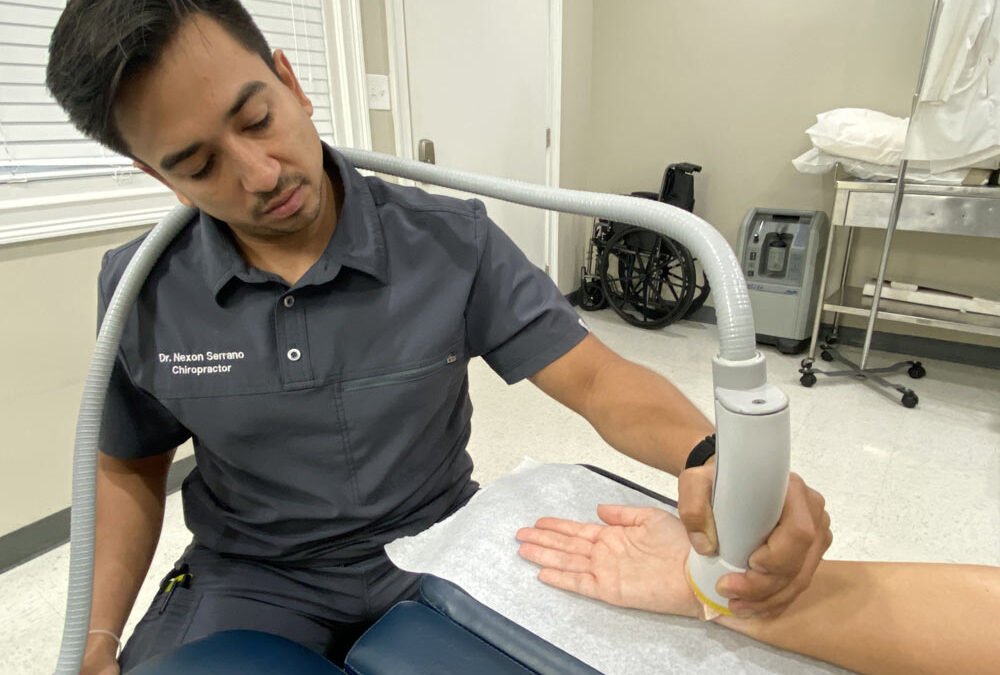Neuropathy and knee pain can significantly affect quality of life, often leading to discomfort and limited mobility. Softwave Therapy is a promising non-invasive treatment option, providing pain relief and enhancing tissue healing. This innovative approach harnesses the power of shockwave technology to target affected areas, promoting natural recovery processes in the body. It offers a potential solution for those seeking effective pain management without relying on medication or invasive procedures.
Understanding Neuropathy and Knee Pain
Neuropathy, a condition resulting from damaged nerves, can cause a range of symptoms including pain, numbness, tingling, and weakness, particularly in the extremities. When it affects the knee, it can significantly impact mobility and quality of life. Various factors, including diabetes, injuries, infections, and exposure to toxins, can lead to neuropathy. The knee, a complex joint crucial for movement, is vulnerable to neuropathic pain due to its extensive nerve supply and the strain it endures.
Knee pain related to neuropathy is often characterized by a persistent, sometimes burning pain that can be exacerbated by movement. It can also manifest as a sharp, shooting pain or a deep, aching sensation. This type of pain is not just limited to physical discomfort; it can also have psychological effects, such as increased stress and anxiety, and can hinder daily activities.
Diagnosing neuropathic knee pain involves a comprehensive approach, including medical history analysis, physical examinations, and possibly nerve function tests. It’s important for healthcare professionals to distinguish neuropathic pain from other types of knee pain, such as that caused by osteoarthritis or injury, as the treatment approaches can differ significantly.
Treatment for neuropathic knee pain often includes a combination of medication, physical therapy, and lifestyle adjustments. However, traditional treatment methods can sometimes be inadequate or come with undesirable side effects. This gap in effective pain management has led to the exploration of alternative therapies, such as Softwave Therapy, which offers a non-invasive, drug-free approach to pain relief and tissue healing.
Common Causes and Symptoms of Neuropathy in the Knee
Neuropathy in the knee is often a result of nerve damage or dysfunction, which can stem from a variety of causes. Some of the most common include:
- Diabetes: One of the leading causes of neuropathy, high blood sugar levels can damage nerves over time.
- Injuries: Trauma to the knee can harm the nerves directly or indirectly through related structures.
- Infections and Autoimmune Disorders: Certain infections and autoimmune diseases can attack nerve tissues.
- Vitamin Deficiencies and Alcoholism: Both can lead to nerve damage, affecting knee function.
The symptoms of neuropathy in the knee can vary but typically include sensations such as:
- Pain: Ranging from sharp, shooting pain to a persistent dull ache.
- Numbness: Loss of sensation in and around the knee area.
- Tingling or Burning Sensations: Often described as ‘pins and needles.’
- Weakness: Difficulty in moving the knee or maintaining stability.
These symptoms can fluctuate, sometimes worsening at night. It’s crucial for individuals experiencing these signs to seek medical evaluation, as early diagnosis and treatment can prevent further nerve damage and improve outcomes. Additionally, understanding the underlying causes is essential for effective treatment and management, paving the way for therapies like Softwave Therapy to be more effectively utilized.
The Role of Softwave Therapy in Pain Management
Softwave Therapy, a non-invasive medical procedure, has gained attention for its potential role in managing neuropathic knee pain and improving overall knee health. This therapy utilizes shockwave technology to deliver acoustic waves to targeted areas of the knee, stimulating the body’s natural healing processes. While it’s not a standalone cure, software therapy can be a valuable component of a comprehensive pain management strategy.
The mechanism behind Softwave Therapy lies in its ability to increase blood flow, promote tissue regeneration, and reduce inflammation. When applied to the knee area, the acoustic waves encourage the release of growth factors, which aid in repairing damaged nerves and tissues. This process not only addresses the symptoms of neuropathy but also contributes to the restoration of knee function.
Unlike surgical interventions, softwave therapy is a non-surgical and non-pharmaceutical approach to pain relief. Patients typically experience minimal discomfort during the procedure, which is performed in an outpatient setting. Moreover, there is no need for extended recovery periods or the risks associated with surgery. Softwave Therapy offers a promising avenue for individuals seeking effective pain management without the potential side effects of medication or the invasiveness of surgery.
It’s important to note that softwave therapy may not be suitable for everyone, and individual results can vary. Consultation with a healthcare professional is essential to determine whether softwave therapy is a suitable option for addressing neuropathic knee pain. When incorporated into a tailored treatment plan, Softwave Therapy can complement existing therapies and contribute to improved knee comfort and function.
Benefits of Softwave Therapy for Knee Pain Relief
Softwave Therapy offers several notable benefits for individuals seeking relief from neuropathic knee pain:
- Non-Invasive Nature: Softwave Therapy is a non-surgical procedure, eliminating the need for incisions or anesthesia. This minimizes the risks associated with surgery and reduces recovery time.
- Pain Reduction: The acoustic waves used in Softwave Therapy stimulate the body’s natural pain-relief mechanisms. Patients often experience a significant reduction in knee pain, making daily activities more manageable.
- Improved Mobility: By promoting tissue regeneration and reducing inflammation, Softwave Therapy can enhance knee joint function. This can lead to increased mobility and a better quality of life for those suffering from neuropathic knee pain.
- No Medication Required: Softwave Therapy is drug-free, making it a suitable option for individuals who prefer to avoid pharmaceuticals or have concerns about potential side effects.
- Quick and Convenient: Softwave Therapy sessions are typically short and performed on an outpatient basis. Patients can resume their daily activities shortly after treatment, making it a convenient choice for those with busy schedules.
- Minimal Side Effects: Softwave Therapy is generally well-tolerated, with minimal side effects reported. Some individuals may experience mild discomfort during the procedure, but this is usually temporary.
- Potential Long-Term Benefits: Softwave Therapy not only provides immediate relief but can also contribute to long-term improvements in knee health. The stimulation of natural healing processes can lead to sustained pain reduction and enhanced knee function over time.
It’s essential to consult with a healthcare professional to determine whether Softwave Therapy is suitable for individual needs and conditions. When integrated into a comprehensive pain management plan, Softwave Therapy has the potential to offer substantial benefits for individuals dealing with neuropathic knee pain.
Combining Softwave Therapy with Other Treatment Approaches
While Softwave Therapy shows promise in addressing neuropathic knee pain, it is often most effective when integrated into a holistic treatment plan. Combining Softwave Therapy with other complementary approaches can maximize its benefits and provide a well-rounded solution for managing knee pain. Here are some strategies for combining Softwave Therapy with other treatments:
- Physical Therapy: Physical therapy exercises and techniques can help improve knee strength and flexibility. Softwave Therapy can be used in conjunction with physical therapy to accelerate recovery and enhance the effectiveness of exercises.
- Medication Management: For some individuals, medication may be part of their pain management strategy. Softwave Therapy can complement medication by providing additional pain relief and potentially reducing the need for higher doses.
- Lifestyle Modifications: Lifestyle changes such as weight management and adopting a healthy diet can play a crucial role in managing neuropathic knee pain. Softwave Therapy can support these changes by reducing pain and improving mobility, making it easier for individuals to engage in healthier behaviors.
- Stress Reduction Techniques: Chronic pain can often be exacerbated by stress and anxiety. Techniques like mindfulness meditation and relaxation exercises can be integrated with Softwave Therapy to address both the physical and emotional aspects of pain.
The key to successful pain management is a personalized approach that considers the unique needs and circumstances of each individual. Healthcare professionals can assess the specific condition and design a treatment plan that combines software therapy with other therapies for the most effective results. By working with other treatments, softwave therapy can contribute to a comprehensive strategy for alleviating neuropathic knee pain and improving overall knee health.
Patient Care and Safety During Softwave Therapy
Ensuring patient care and safety during Softwave Therapy sessions is of paramount importance. Softwave Therapy is known for its non-invasive nature and minimal side effects, but healthcare professionals should still take precautions to provide the best possible experience for patients.
Firstly, a thorough evaluation of the patient’s medical history and knee condition is essential before starting Softwave Therapy. This evaluation helps in identifying any contraindications or potential risks. Patients should have a clear understanding of the procedure and what to expect during the session.
During the session, patients are positioned comfortably, and the treatment area is carefully targeted. The therapy is administered by a trained professional who monitors the patient’s response throughout the procedure. Patients may experience mild discomfort or tingling sensations during the treatment, but this is generally well-tolerated.
After the session, post-treatment care and instructions are provided to patients. This may include recommendations for activity levels, follow-up appointments, and any additional treatments that may be part of the overall plan. Patient safety and well-being remain a top priority throughout the entire Softwave Therapy process, ensuring that individuals receive the best possible care for their neuropathic knee pain.
Contact Rittenhouse Square Chiropractic
At Rittenhouse Square Chiropractic, we provide comprehensive care for individuals with neuropathic knee pain. If you’re seeking relief from knee discomfort and are interested in exploring Softwave Therapy as a potential solution, don’t hesitate to reach out to us. Our experienced team will schedule a consultation to assess your specific condition and determine the most suitable treatment plan for your needs. We prioritize your well-being and are dedicated to offering a personalized approach to pain management. Contact us today to take the first step towards a more comfortable and active lifestyle.

